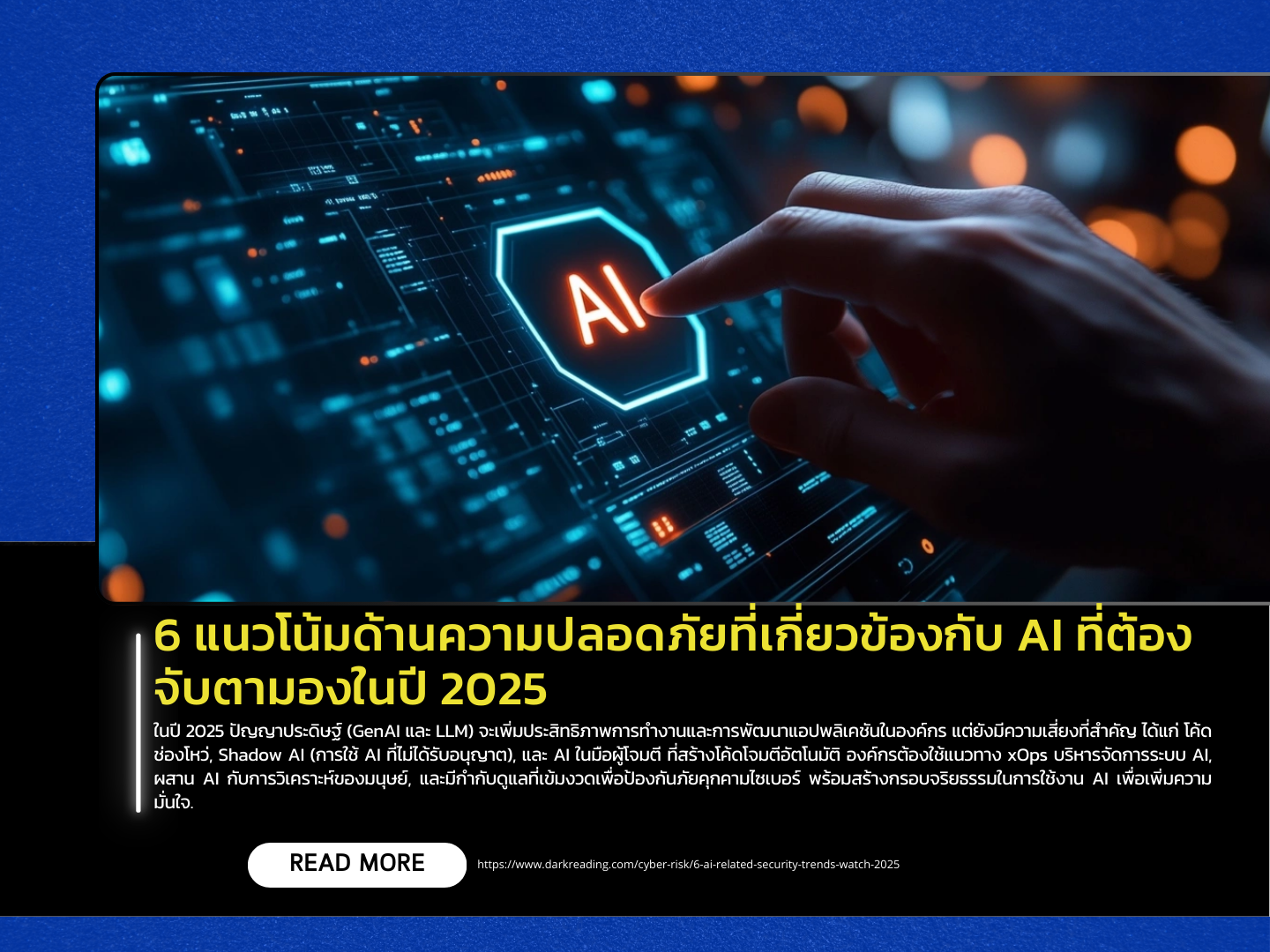03/68 Friday, January 3, 2025

The role of AI is becoming a critical focus for organizations worldwide in 2025. Analysts believe that the use of Generative Artificial Intelligence (GenAI) and Large Language Models (LLMs) will significantly enhance productivity and efficiency. However, these advancements also introduce new challenges in terms of security, privacy, and governance. The six key AI-related security risks to monitor are as follows:
- AI-Driven Software Development Acceleration
AI is increasingly used to speed up software development. A survey of 1,700 IT professionals found that 81% of organizations are adopting AI to assist in coding and plan to create at least 10 new applications within the next 12 months. However, this rapid development may also lead to risks, such as generating code with vulnerabilities, data exposure, and insufficient security standards. - xOps: A New Approach to AI System Management
“xOps” is an emerging methodology for managing AI systems, integrating concepts from DevSecOps, DataOps, and ModelOps. This approach focuses on comprehensive lifecycle management of AI-powered applications to ensure system security and quality. However, this trend may increase pressure on development and quality assurance teams due to stricter requirements. - Shadow AI as an Emerging Risk
The rise of Shadow AI—unauthorized use of AI tools—presents a growing threat to organizations. For instance, using unmanaged chatbots could lead to leaks of sensitive data. Experts predict that this issue will become more severe next year without appropriate monitoring and control measures. - AI as a Support, Not a Replacement for Human Expertise
While AI excels at handling large datasets and repetitive tasks, human analysis remains essential for identifying complex threats. The combination of AI technology and human analytical skills will continue to be crucial in strengthening security frameworks. - AI in the Hands of Attackers
One of the critical challenges is the potential misuse of AI by attackers. Cybercriminals are leveraging AI to create automated attack scripts, particularly targeting open-source software. This could lead to more complex zero-day attacks. Organizations must adopt robust security strategies to stay ahead of these threats. - The Need for Human Governance and Ethical Oversight
Despite AI’s advancements, trust in AI systems remains limited. Human oversight and the development of ethical frameworks for AI usage will play a key role in mitigating risks and building organizational confidence in AI adoption.
The role of AI in the coming year is poised to bring positive transformation, but it will also introduce more complex security risks. Organizations aiming to maximize the benefits of AI must be well-prepared in both technology and governance to address these emerging challenges comprehensively.
Source https://www.darkreading.com/cyber-risk/6-ai-related-security-trends-watch-2025
